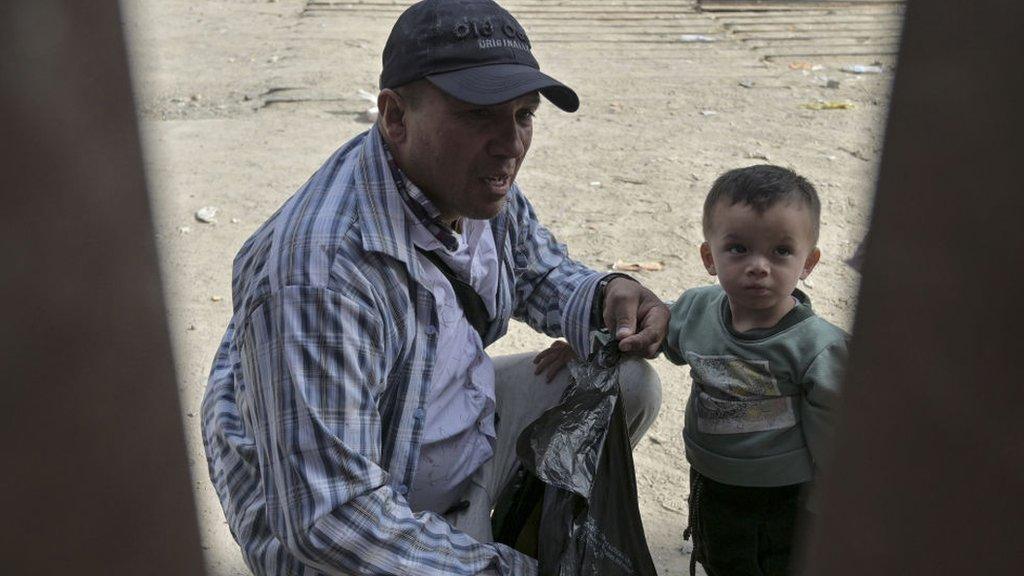Biden border plan attacked by Republican rivals
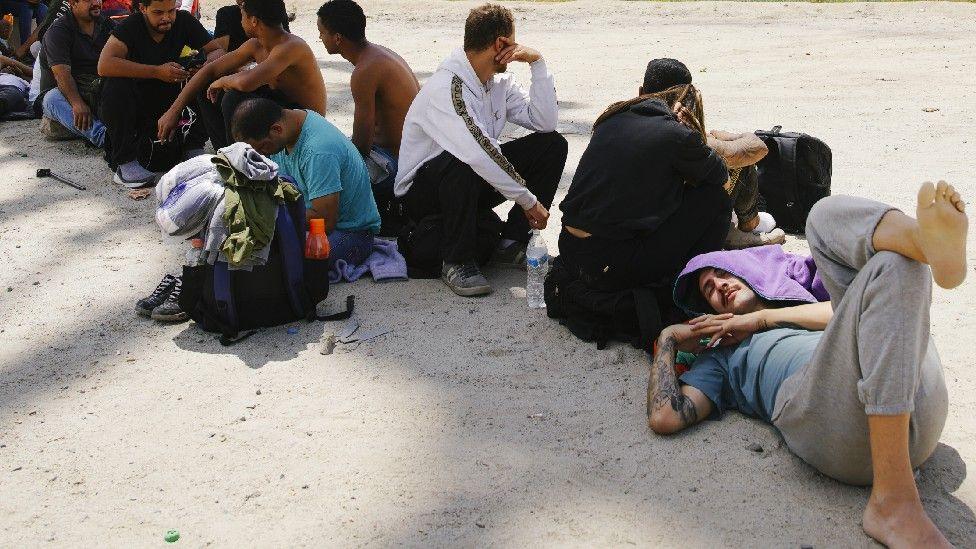
A group of migrants who were detained attempting to cross the US border from Mexico yesterday
- Published
US President Joe Biden's Republican rivals, and some of his Democratic allies, have criticised his new executive order aimed at curbing record migrant arrivals at the US-Mexico border.
Under the order, which took effect at midnight, officials can quickly remove migrants entering the US illegally without processing their asylum requests.
Left-wing Democrats, activists and the UN have voiced concerns, while Republicans have criticised the plan as an election-year ruse, arguing for tougher action.
But Mr Biden says his Republican opponents stood in the way of a bipartisan border security deal that failed in Congress earlier this year.
Biden announces ban on migrants crossing border unlawfully
Former US President Donald Trump, the Republican candidate in this November's election, slammed Mr Biden's executive action on Tuesday.
Mr Biden had "surrendered our southern border", and was now "pretending to finally do something" about it, Mr Trump wrote on social media. He was echoed by others including Texas Senator Ted Cruz.
The president hit back, accusing the Trump camp of an "extremely cynical political move" by pressurising Republican lawmakers to block the proposed border plan in Congress earlier in the year.
Speaking on Tuesday, the president vowed that his executive order would "help us gain control of our border".
He asked left-wing critics for their patience. "Doing nothing is not an option," he said.
About a dozen advocates and Democratic lawmakers had their own press conference outside the US Capitol on Tuesday, criticising Mr Biden's decision.
Pramila Jayapal, the chair of the Congressional Progressive Caucus, said she was "profoundly disappointed", calling the order a "step in the wrong direction".
Migrants react to Biden's executive order on immigration
More than 6.4 million migrants have been stopped crossing into the US illegally during Mr Biden's administration. The arrival numbers have plummeted this year, though experts believe that trend is unlikely to continue.
The White House says the new order "will be in effect when high levels of encounters at the southern border exceed our ability to deliver timely consequences, as is the case today."
The restrictions will come into force when the seven-day average for daily crossings hits 2,500 - when the border is "overwhelmed", as the White House describes it.
"They will make it easier for immigration officers to quickly remove individuals who do not have a legal basis to remain," officials explained.
The border will reopen to asylum seekers only when the average figure holds at 1,500 over a seven-day period - and it will then reopen to migrants two weeks later.
Other measures are aimed at quickly resolving immigration cases in court, and expedited removals for those found to have no legal basis to remain in the US.
Asylum processing at ports of entry will continue under the order.
About 1,500 asylum seekers go through the process at official crossings each day, mostly after setting up appointments using a Customs and Border Protection (CBP) app known as CBP One.
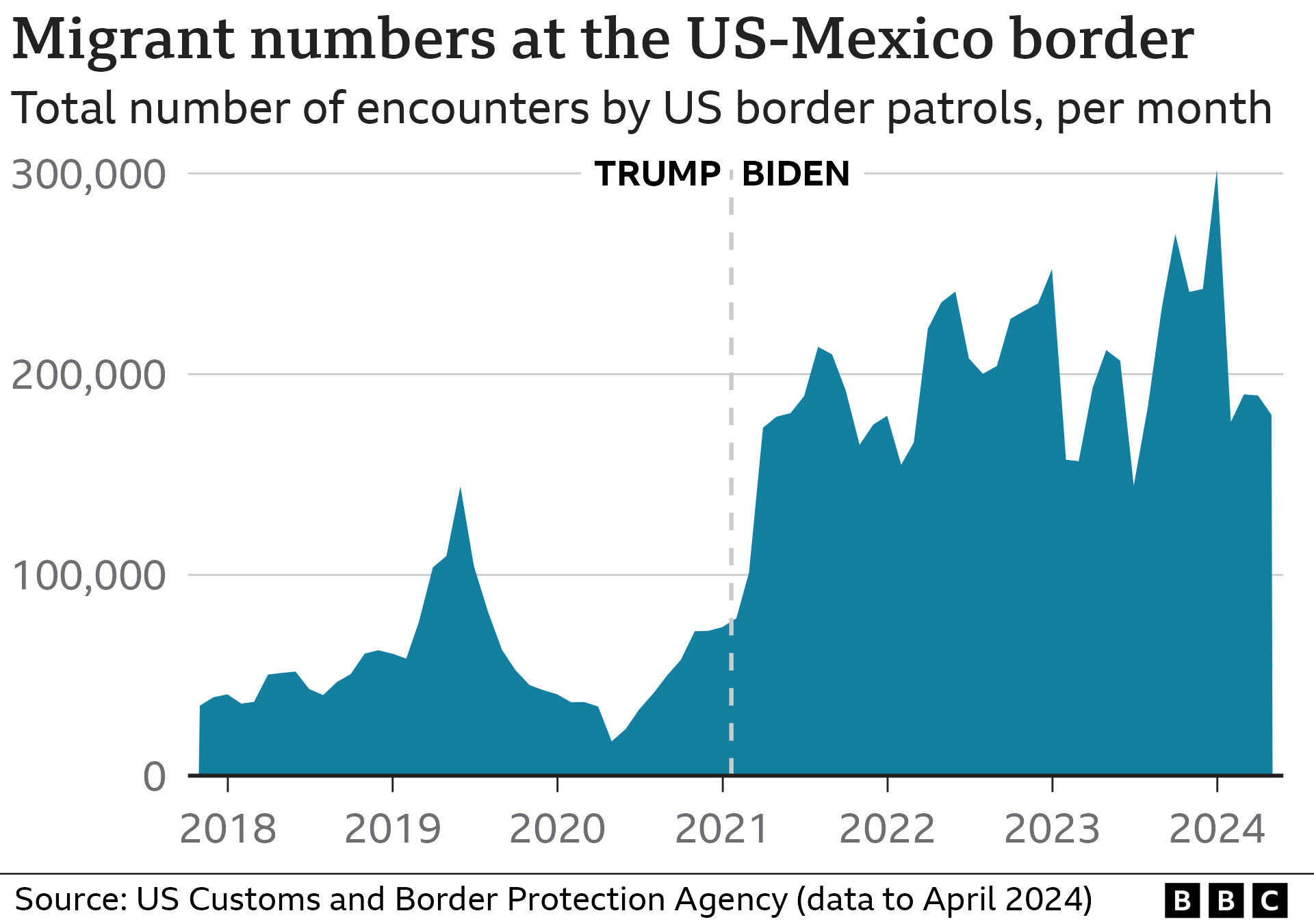
Among the actions announced were the use of a 1952 law that allows access to the asylum system to be restricted.
The law, known as 212(f), allows a president to "suspend the entry" of foreigners if their arrival is "detrimental to the interests" of the country.
The same regulation was used by the Trump administration to ban immigration and travel from several predominantly Muslim countries and to bar migrants from asylum if they were apprehended crossing into the US illegally, provoking accusations of racism.
"It’s unfortunate that politics are driving the immigration conversation in an increasingly restrictive direction," commented Jennie Murray, president and the CEO of the National Immigration Forum.
Guerline Jozef, executive director of Haitian Bridge Alliance - which works with Haitian migrants at the border - called the announcement "a direct assault on the fundamental human right to seek asylum".
A spokeswoman for the UN's refugee agency insisted that people fearing persecution must have access to safe territory.
The issue of migration has become a headache for Mr Biden in an election year. Trump has vowed to carry out the "largest deportation operation" in American history to remove undocumented migrants already if he is re-elected.
Biden administration officials have resisted comparisons with policies from Trump's presidency, saying the new rules touted on Tuesday would only apply during periods of increased arrivals.
They said exemptions would be made for unaccompanied children and those being trafficked.
The Biden administration plans to defend the new policies in court from any legal challenges it could face - a risk that was highlighted by Ms Jayapal.
Mexican media have depicted the move as one of Mr Biden's toughest policies, though President Andrés Manuel López Obrador sought to downplay the issue, arguing that economic and cultural exchange made a border closure "impossible".
Authorities in Tijuana asked what would happen to asylum seekers denied entry to the US.
Shelters in the Mexican city could quickly get overcrowded, one local official warned. "We’d start seeing people on the streets, sleeping in tents”.
- Published16 May 2024
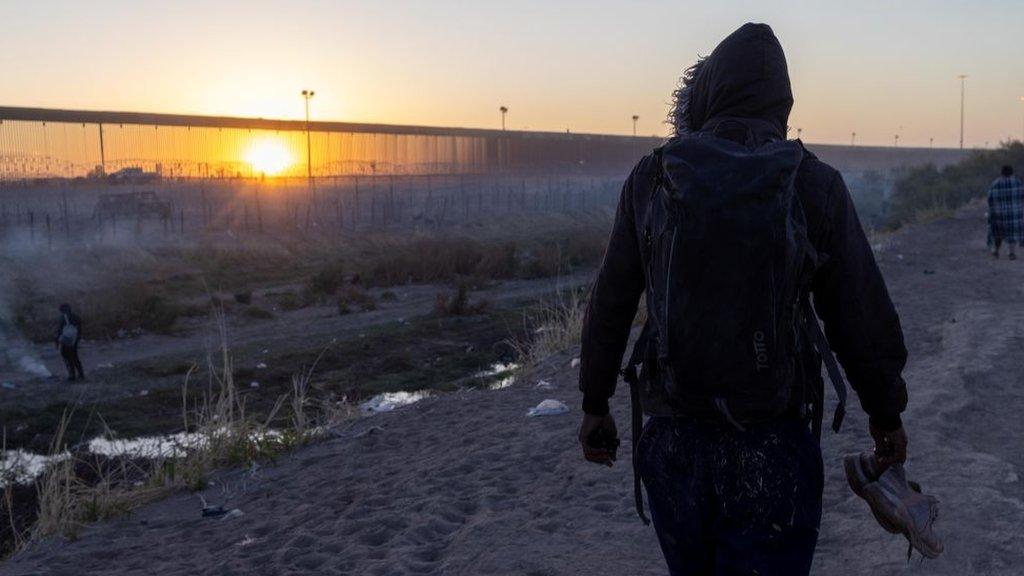
- Published21 April 2024
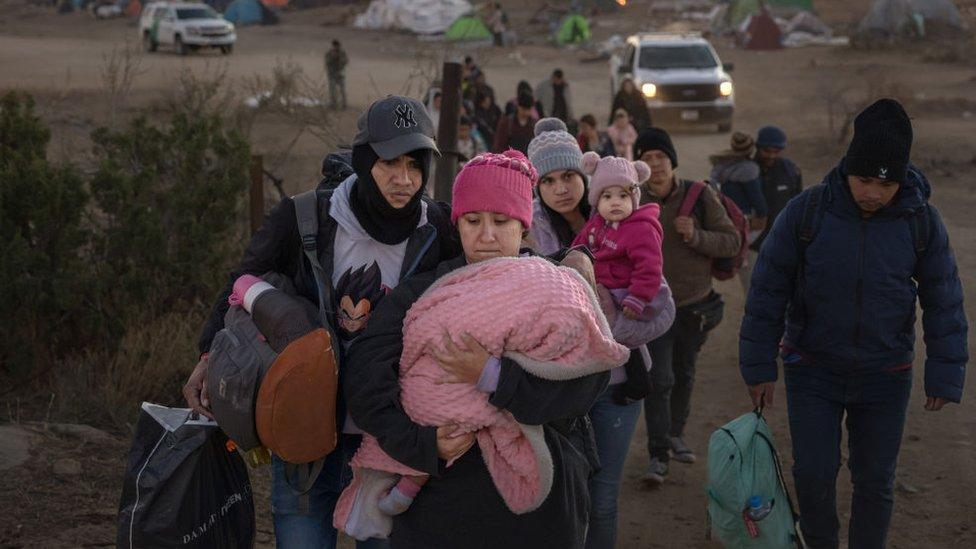
- Published28 February 2024
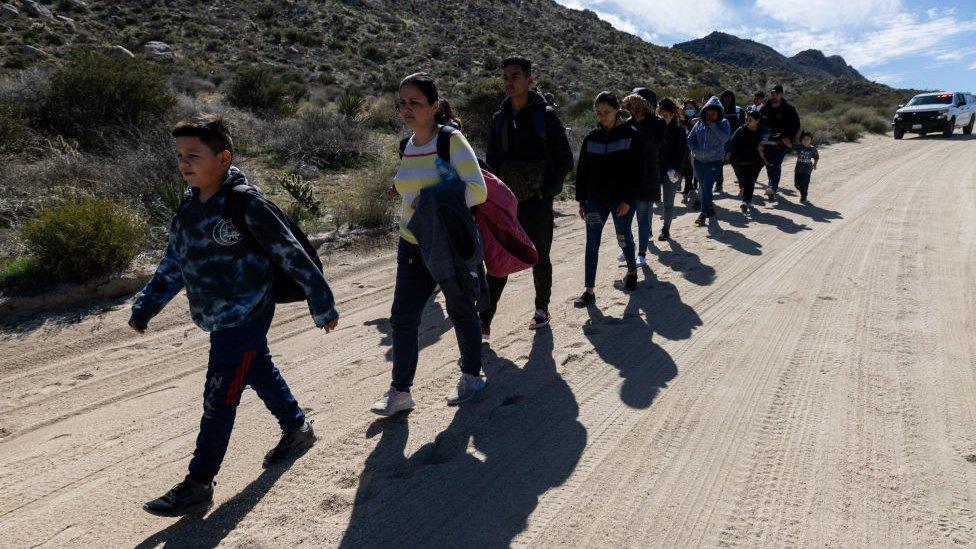
- Published4 June 2024
